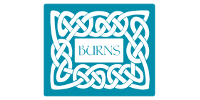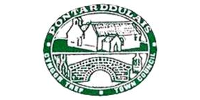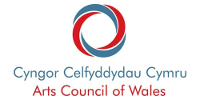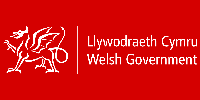The First World War
World War One starts on 28th July 1914, and on 4th August 1914, Britain declares war on Germany.
The band’s first engagement during the Great War, in early September 1914, was by all accounts a momentous event. “There were scenes of great enthusiasm at Pontardulais on Tuesday night. When the 50 ‘Cory boys’ (the Cory boys were employed at the Graig Merthyr Colliery, Pontardulais, which was owned by the Cory Brothers Company) returned from seeing the recruiting officers at Swansea, they were met at the railway station by the Pontardulais Town Silver Band (Mr. R L. Davies, A.C., conductor). The recruits marshalled by Mr Rhys Gwilym Davies, Hendy, and with Messrs. D. Joseph Davies, M. E. (Manager), and Caradog Jones (Checkweigher) leading, they marched along the main streets. Thousands joined the procession, and the thoroughfares were thronged. A halt was made at King’s Cross and speeches were delivered by Messrs. Davies and Jones. Martial airs and National Anthems were played, and the crowd dispersed at 11p.m”.
Recruitment
Over the course of the War, the Band would be present at numerous recruitment and enlistment evenings, particularly with the Voluntary Training Corps who were based at Pontardulais, Sketty and Carmarthen. At one recruitment event held in the Public Hall, Llandovery in October 1917, the Carmarthen Journal reports the “Pontardulais Silver Band rendered some patriotic selections in brilliant style which evoked much applause”.
Homecomings
During the War, the Band also turned out in force to the many homecomings of soldiers returning from the battlefront. Newspapers report that villagers in their thousands would turn out at Pontardulais train station to welcome their heroes home with “tremendous enthusiasm” and “great rejoicings”. The soldiers would be carried shoulder high by the crowd through streets “gay with bunting” and escorted home in a large procession, headed by Pontardulais Town Band playing martial airs all the way home.
Such was the welcome, local villages such as Ammanford were quite envious: a report in the Amman Valley Newspaper writes “It has not been creditable to see some men in khaki coming home unwelcomed, and allowed to return without any recognition. In the neighbouring town of Pontardulais, returned warriors, who have been wounded, have been greeted by the inhabitants heartily, and the Town Band has turned out to head the welcoming throng”.
Receptions & Presentations
The Band also played at numerous public receptions and presentations in honour of returned soldiers, celebrating military decorations including the Military Cross, an award for gallantry or meritorious service which was awarded to Capt. T Ll. Bowen R.G.A. in October 1917.
…And Send Offs
Returning soldiers to the front were also given a great send off. The Herald reports in February 1916 “There was a great demonstration at Pontardulais on Thursday evening, on the occasion of the return to the front of Privates David Matthews and David John Owen. They were escorted to the railway station by the Town Silver Band and a couple of thousand friends”.
On Parade
There were many Church parades through Pontardulais at this time too, often with soldiers home on leave and/or members of the Voluntary Training Corps and the RAOB (Royal Antediluvian Order of the Buffaloes, one of the largest fraternal organisations in the UK). Parades usually fell in near the old police station in Pontardulais, with Pontardulais Band leading the parade to church, usually St. Michael’s or Tabernacle Baptist Chapel. It is very well documented that Pontardulais Town band would often play ‘Dead March in Saul’ on occasions such as these – Saul is an original work and funeral march written by Handel in 1738.
Atteeeeee…ntion!
As previously mentioned, Pontardulais Town Band were very involved with the Voluntary Training Corps (the band joined up as volunteers en masse), providing the music for Company Drill, March Pasts and Inspection Parades. The Band must have passed “muster” as their presence greatly added to the success of the drill nights, and they were often complimented for their ‘excellent playing’.
Sadly, during the First World War, one of the Band’s most poignant duties was to play at the military funerals of local soldiers. The following is an extract of the description of one of these funerals from the Carmarthen Journal on 10th August 1917:
WAR JOTTINGS: The mortal remains of the late Stoker Jack (John) Jenkins, 1st class officer, 54173 (R.F.BR.), H.M.S. Ariadne, whose vessel was sunk and torpedoed on July 26th, were laid to their last resting place on Wednesday evening at Glyncoch Cemetery with full military honours. Thousands of people had assembled from all parts to witness the third event of its kind ever seen in the place. The Rev. W. Morgan, B.A. (vicar), and the Rev. E Richards, L.D. (curate), headed the cortege. The coffin was draped with the Union Jack and numerous floral tributes. Then followed a squad of infantry, with rifles reversed, marching to the strains of the Dead March in Saul from the Pontardulais Town Prize Silver Band. Then followed the Glamorgan platoon of the 3rd Glamorgan Volunteer Regiment, most of whom were in uniform. At the graveside the scene was most impressive and pathetic. After the singing of ‘Bydd myrdd o ryfeddodau’ and the Benediction, the firing party fired volleys and finally the “Last Post” was sounded by a Swansea busier.
Information from documents relating to Pontardulais War Memorial tells us more about John Jenkins: John was the husband of Mary Jenkins of Glanyrafon Road, Pontardulais. He served in the Royal Navy aboard the HMS Ariadne, a Diadem Class Cruiser, which had been converted for minesweeping duties. John died when Ariadne was sunk by the German Submarine UC-65 off Beachy Head on 26th July 1917. He was 39 years old, and his body must have been recovered from the sea. He is buried at Rhydgoch Cemetery, Pontardulais.
There were also many memorial services for the fallen held in Pontardulais in which the Band participated. Usually they would be held in St. Michael’s Church, although there was a special service held in August 1919. Almost 300 ex-servicemen and nurses, headed by the Town Band, marched from the train station to the cricket ground, where an outdoor service was held. Large crowds from surrounding districts gathered at the field to witness the service and pay their respects.
Sadly there were other funerals too. Pontardulais was home to the Graig Merthyr Colliery, which was opened in 1849. During the early part of the 20th century it was owned by the Cory Brothers Company, who wanted the coal to power their fuel works in Swansea. They mined deep into the Pysgodlyn Mountain, at the top end of Pontardulais, eventually coming out in Clydach! Between 1906 and 1919 an average of 1,000-1,500 tons of coal a day were raised to the surface. It was dirty and dangerous work, and the spring of 1916 saw two tragic incidents, one of which involved Pontardulais Band’s very own.
In April 1916 Mr Richard Owen Williams met with an instantaneous death caused by a fall at Graig Merthyr Colliery. His funeral was was one of the largest ever seen at Pontardulais. All work was suspended at the Colliery for the afternoon to allow employees to pay their respects. The cortege, led by Pontardulais Town Band, made its way from Mr Williams’ home in Glanyrafon Road to the cemetery at Rhyd Goch. The band played Dead March en route.
The second tragic event occurred the very next month. Newspapers report that Mr David Williams, a Hitcher at the Colliery, met with an instantaneous death when he was crushed between two journeys of trams at the Graig Merthyr Colliery. It was the second time in a few months that the family had suffered terrible sadness, as Mr Williams was the father of “a little girl who was fatally burned in the mountain side fire near Pontardulais a few months ago. Some bracken had caught alight, and a gust of wind caused the flames to fly in the direction of the child, who became enveloped. Her two brothers rushed to her assistance, but were powerless to save the unhappy girl from being terribly burned”. Mr Williams was described as a “good musician” and a “leading” and “brilliant member” of Pontardulais Temperance Band. The Band led the parade on the day of the funeral, with the Band Committee acting as pall-bearers. At the graveside at Goppa Chapel – home of the annual Cor Glandulais Christmas Concert – the Band played selections. Resting on the coffin throughout the service was “the deceased’s pet instrument”. Could he have been buried with it?
The Town Band were in high demand in the local and surrounding community. They were particularly busy during the second half of the First World War, from 1916 onwards, and the Band receives regular name checks in the local press. Events they attended included Pontardulais Show, Llangennech Baby Show, Fete & Gala, concerts were given on the Mumbles Pier, benefit concerts for Soldiers Fund (mostly at Haggars Theatre, Pontardulais), Tea Party at Ffosyrefail, Grovesend Fete & Gala, Llandovery Mayor’s Parade, fundraising concerts at Belle Vue Grounds and Coed Bach, and parades through the Bont. Phew! The proceeds of these events would be given to local heroes’ funds and the Band would usually provide their services ‘gratis’. At their debut on the Mumbles Pier in June 1916, the Cambria reports the band “was in fine form, and rendered several selections in good style. Cornet and trombone solos were rendered by Messrs. W. Richards and W. Isaac”. While the papers usually note that the “band rendered fine selections”, there are no references to what pieces they actually played. One wonders if there is any music from this period in the current band library?








